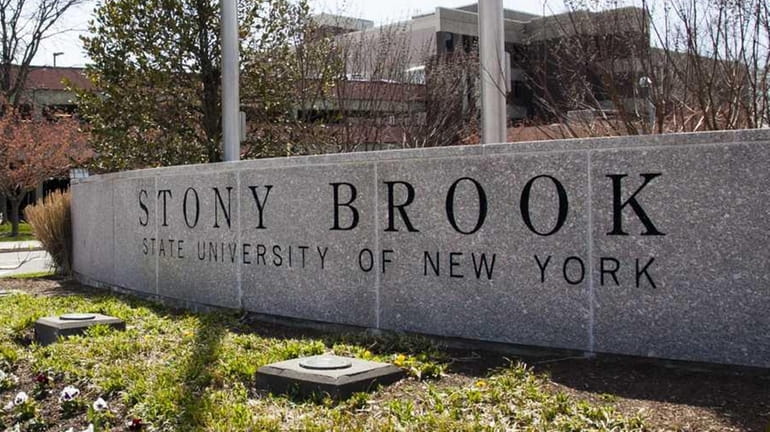Don't stress if you can't afford a prestigious private school

The entrance to the campus of Stony Brook University is seen in an undated image. Credit: Heather Walsh
As many high school seniors eagerly await to hear back from colleges, it’s important to keep in mind that what you do in college is far more important than the name of the school you attend.
Leaving high school four years ago, I didn’t have the ability to go to a prestigious private school. Now, as I prepare to graduate from Stony Brook University, I don’t feel disadvantaged by having attended a state school, but rather empowered by the work I’ve done and the opportunities I’ve had.
For me, Stony Brook offered a gateway into the job market without breaking the bank. I wasn’t the best high school student, so I wasn’t offered big scholarships to attend college. I made the most of in-state tuition and got a world-class education without going into debt.
But like all personal decisions, college choices are subjective. Some students will get a full ride to their dream schools, some may stretch to attend a community college. Whatever your situation may be, make the most of it.
Just because you may not be able to attend a prestigious private school, doesn’t mean you cannot succeed.
In January, researchers from Stanford, Brown and UC Berkeley gathered to create Mobility Report Cards for universities across the country. They found that low-income students generally fared better at affordable schools than expensive private schools.
The report analyzed two main factors — access and success. Access rates were determined by what percentage of the student population at any given university is from the bottom 20 percent of income distribution. Success was determined by what percentage of those who graduate from that bottom 20 percent go on to become a part of the top 20 percent in the country. Stony Brook University was ranked third for social mobility, due its ability to improve the financial means of those who attend.
Unfortunately, the social pressure for students to attend the big-name universities, or overextend beyond their financial means, may be a reason for the insane amount of college debt.
College tuition and fees in the United States have increased by almost 500 percent since 1982, according to Inflation Data, an inflation tracking website. Meanwhile, consumer prices have risen 115 percent in the same time period.
Currently, student loan debt stands at $1.2 trillion across the country, according to Market Watch. Seventy percent of students earning a bachelor’s degree will leave college with some debt.
Even your mental health is tied to the amount of debt you hold.
In 2014, Gallup partnered with Purdue University to study the mental side effects of debt right out of college. The study found a direct correlation between having more debt and being less happy after college graduation. The college experience isn’t supposed to be a crippling one.
But like everything here — it’s about following your own path.
I knew what I was capable of, and Stony Brook’s unique location and wonderful professors empowered me to accomplish what I have in my four years.
If you can’t afford your dream college, or if you don’t even get accepted to your dream college, never stop working.
Jager Robinson is an intern for Newsday Opinion.
